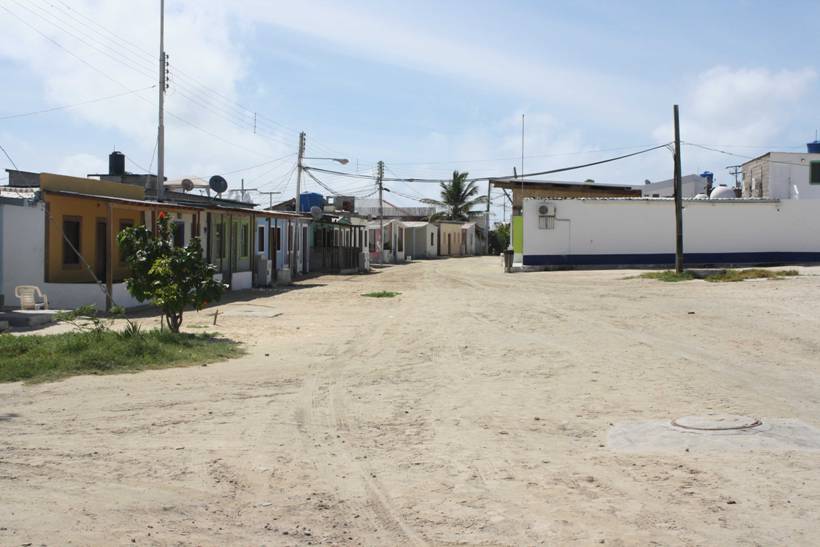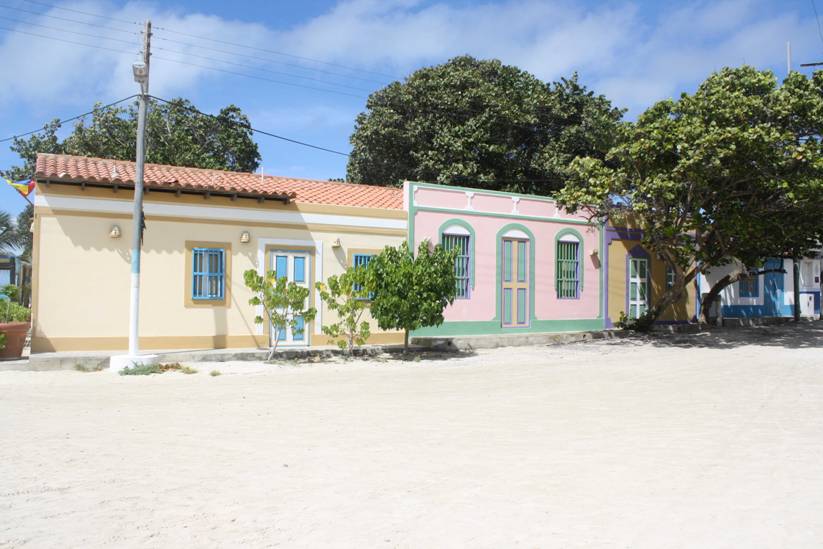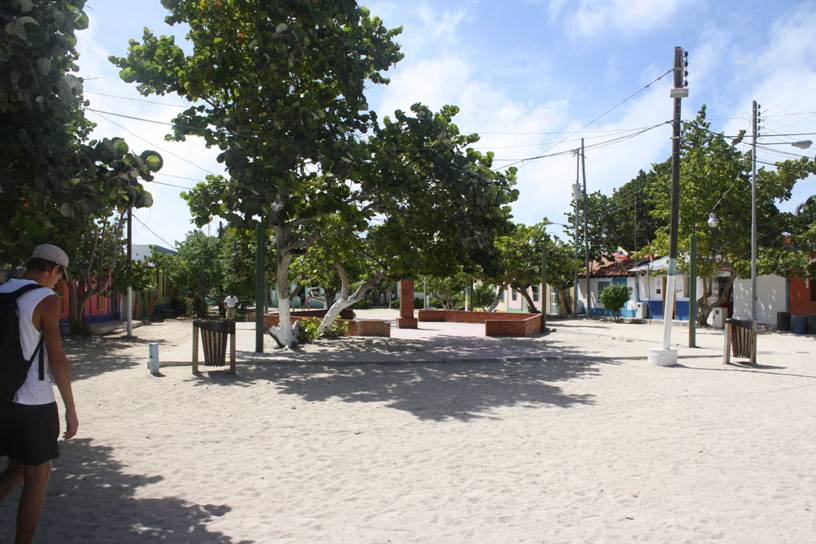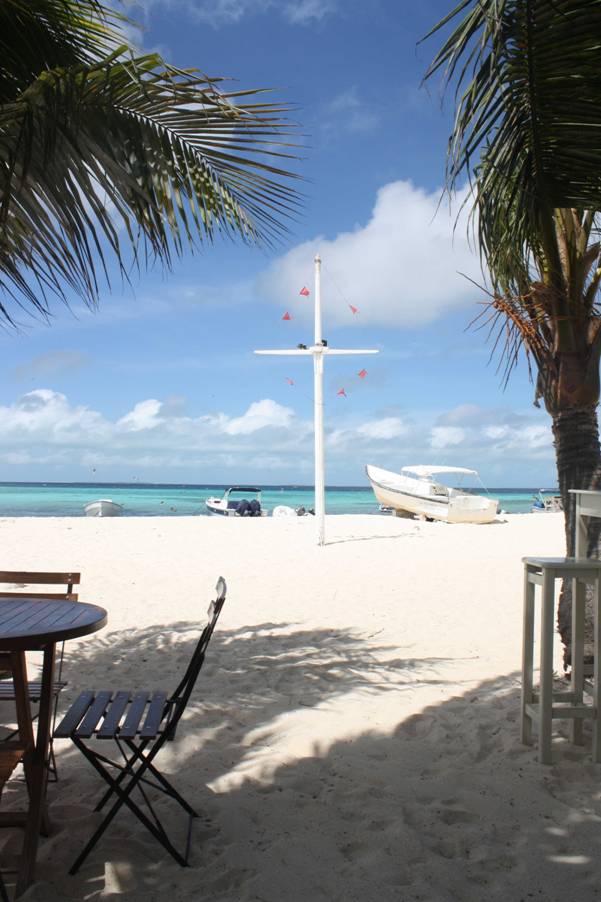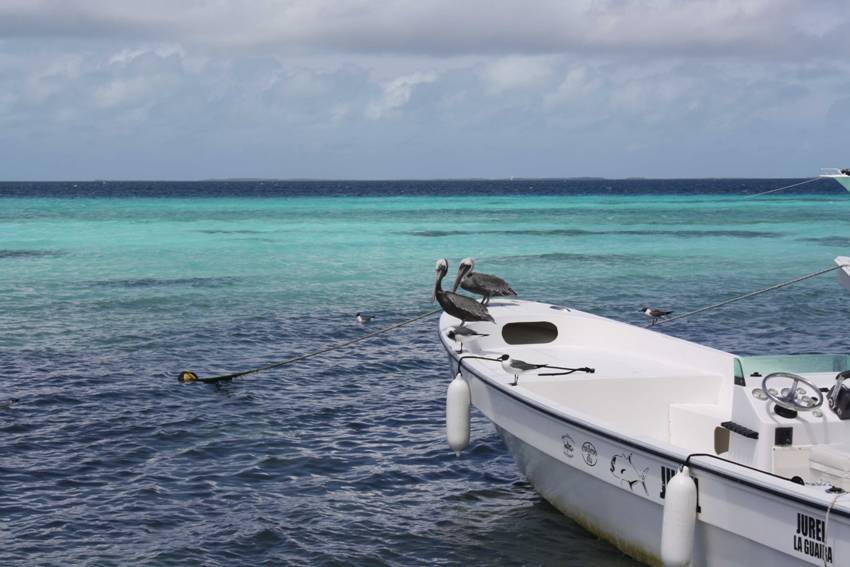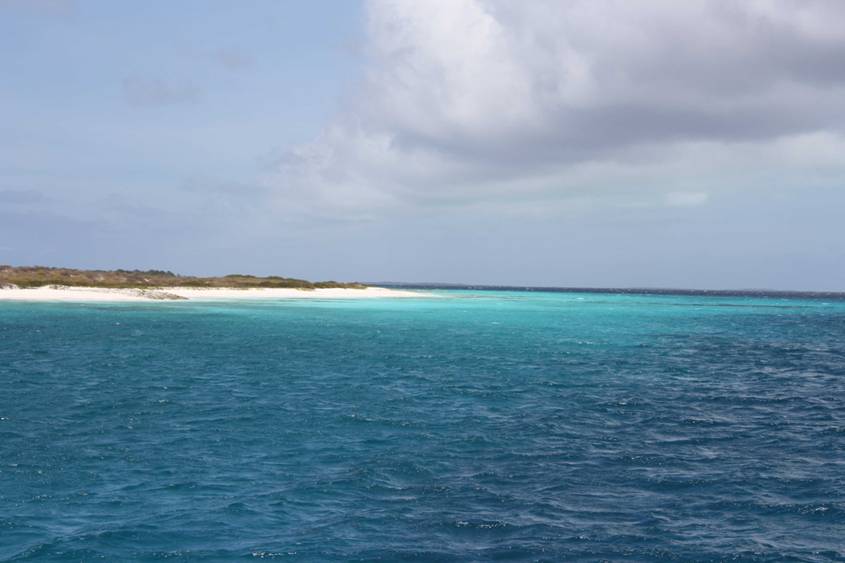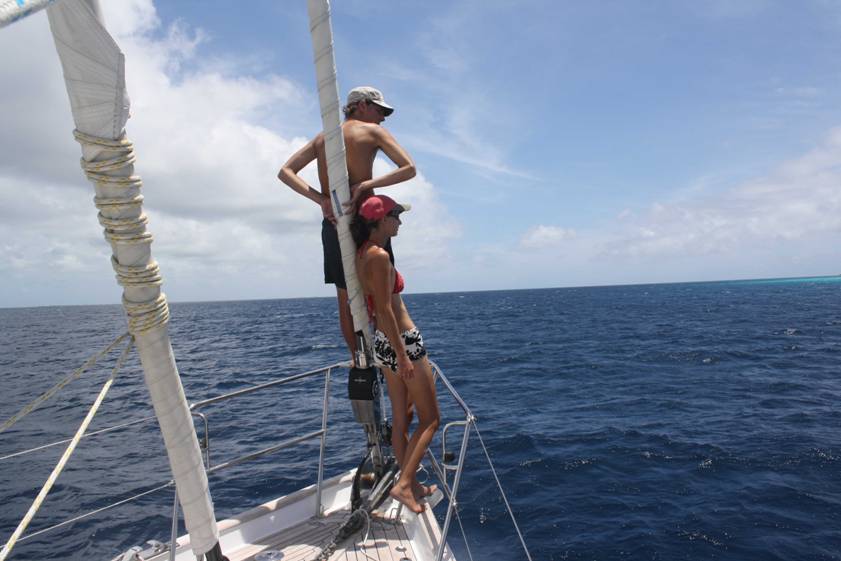Los Roques, lost amongst the reefs and Sandy Cays

|
Having sailed past St Vincent due to the concerns for
personal safety, for the same reasons we had debated long and hard about making
a detour to mainland Venezuela and had decided that we would miss the trouble
spots around Cumana and Isla Margarita, (where there had been 6 murders aboard
cruising boats and numerous instances of robbery and assault within the last
year), and sail due west from Grenada to Blanquilla and then due south to
Puerto La Cruz on the north coast of Venezuela where there is a number of safe
and secure marinas where we could leave the boat and make a number of journeys
inland to go Kayaking up the Orinoco river and into the Andes at Merida. Having
made the decision we continued to check out the cruisers webs and a couple of
days before we left Grenada we learned of the death aboard his boat of an
American cruiser by armed gunmen in the Mochima National Park, less than 10
miles from Puerto La Cruz and one of our planned stopovers. Regrettably we had little choice but to go to plan B and
continue due west to the Los Roques National Park. A group of islands, reefs
and sandy Cays located 80 NM north of Puerto La Cruz. Not having checked into mainland Venezuela, in theory we
could only stop in transit at Los Roques for 24 hours but after some discussion
with the coast guard we were given the impression that if we were simply to
disappear amongst the many cays and isolated anchorages who would know? So that's what we did!!! What a fantastic place it is. Calm seas within the outer
reefs make sailing in steady easterlies an absolute delight, clear water that
covers the whole spectrum of blues and turquoise. Deserted anchorages in
shallow lagoons surrounded by protective reefs. Miles and miles of long sandy
beaches, hundreds of birds diving for the millions of fish that swim in these
waters and fantastic snorkelling along the reefs and shallows. Only the main island of El Gran Roque can be described as
an island and is the location of the only real habitation with a small village
and air strip. The sand covered streets run between pretty colourful houses and
Posadas that offer accommodation for wealthy Venezuelans.
There is a thriving community of fishermen, locals
catering to the tourists that flock here in July and August and the small garrison
of National Guard and Coast Guard personnel. The school is well maintained and
the kids all dressed out in their school uniforms but the few small shops have
little on the shelves and eagerly await the next boat carrying provisions from
the mainland.
For much of the year the islands see few visitors, with
beaches deserted and we saw few other cruising boats out amongst the cays.
The area is noted for the many types of birds, some
migratory and some year round residents and with an abundance of fish the
locals were all well feed.
The very shallow water and sandy seabed created some
amazing shades of blue and turquoise water but another phenomena was the
reflections on the clouds caused by this combination of deep blue and sand.
One drawback of all this shallow water was the need to
have your wits about you when negotiating a passage amongst the reefs and
although the charts were reasonably accurate in outline the chart datum was
over 2,400ft N/S and 400 ft E/W. WE had to resort to good old Mark 1 eyeball navigation
and even then we backed out of some questionable areas.
Overall a fantastic cruising area where it is possible to
get lost for weeks at a time, with numerous anchorages and great day sailing.
|
